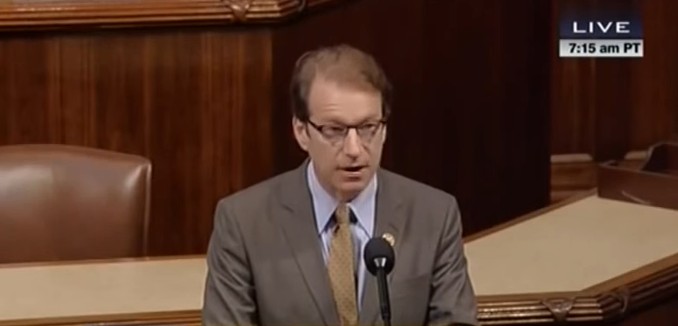Bipartisan resolutions supporting state-imposed sanctions against Iran in the wake of the nuclear deal have been introduced in both chambers of Congress, The Examiner reported on Monday.
Last week, Sens. Mark Kirk (R – Ill.), Joe Manchin (D – W. Va.), and Marco Rubio (R – Fla.) submitted a resolution “to reaffirm congressional support for continued sanctions by state and local governments in the United States against Iran’s sponsorship of terrorism, human rights violations, and other illicit behavior.”
A concurrent resolution was sponsored by Reps. Peter Roskam (R – Ill.), Brad Sherman (D – Calif.), Mike Pompeo (R – Kan.), Ted Deutch (D – Fla.), Lee Zeldin (R – N.Y.), and Dan Lipinski (D – Ill.). Roskam explained in a statement:
The Iran deal specifically calls for removing nuclear-related sanctions while keeping in place those aimed at Tehran’s sponsorship of terrorism and its egregious human rights record.
State-level sanctions, which were authorized under bipartisan legislation signed into law by President Obama in 2010 and target Iran’s illicit non-nuclear activities, in no way contradict the agreement reached by the P5+1 earlier this year. Nevertheless, we must take precautionary action to clarify Congress’s legislative intent to ensure state pension funds and contracts are not used to fund terrorism and atrocities against the Iranian people.
“This bipartisan, bicameral measure reaffirms the rights of the states, 30 of which already have sanctions in place, to maintain these punitive measures against the repressive, authoritarian regime in Tehran. We urge our colleagues to join us in this critical, bipartisan initiative.
The nuclear deal with Iran, also known as the Joint Comprehensive Plan of Action (.pdf), calls on the U.S. government to “actively encourage” individual states to lift sanctions, but does not explicitly require states to comply.
Despite the recent release of a report by the International Atomic Energy Agency showing that Iran has lied about its nuclear program and was working on nuclear bomb related technology as late as 2009, the U.S. and other members of the P5+1 nations are recommending that the IAEA declare its investigation into Iran’s nuclear activities complete. Closing the file on Iran’s past nuclear program will allow the nuclear deal to proceed to the implementation stage, which includes the lifting of nuclear-related sanctions, despite the regime’s past cheating and ongoing stonewalling. This, in turn, will make verification of Iran’s compliance with the nuclear deal significantly more difficult for a number of reasons.
In order to investigate future nuclear violations by Iran after implementation, the IAEA will have to abide by the terms of the JCPOA. The JCPOA allows Iran to bar international inspectors from entering suspicious sites for 24 days or more, which would give the regime ample time to remove evidence and make it impossible for the IAEA to definitively determine if it carried out any illicit activity. This is the same model that the regime seemed to follow at the Parchin military complex, which American intelligence officials claimed was being sanitized in advance of inspections by the IAEA. According to a report (.pdf) by the Institute for Science and International Security on the military site, “extensive sanitization activities since 2012 have seriously interfered in the IAEA’s ability to draw conclusions, particularly without a more rigorous investigation about what occurred there.”
Furthermore, the IAEA will be greatly weakened if the deal is implemented before Iran fully answers all of the agency’s questions. The New York Times on Friday asked, if Iran could dismiss inquiries into its past activities, will it now “be emboldened to stiff-arm inspectors as they seek to enforce the nuclear deal?” The paper also quoted an unnamed IAEA official who said that the nuclear deal had “created a poor precedent for the future” and that his agency would have “no way to force states to come clean.”
In addition to getting away with defying the IAEA, reports surfaced Monday that Iran again launched a ballistic missile, in violation of multiple United Nations resolutions.
[Photo: Peter Roskam / YouTube ]




